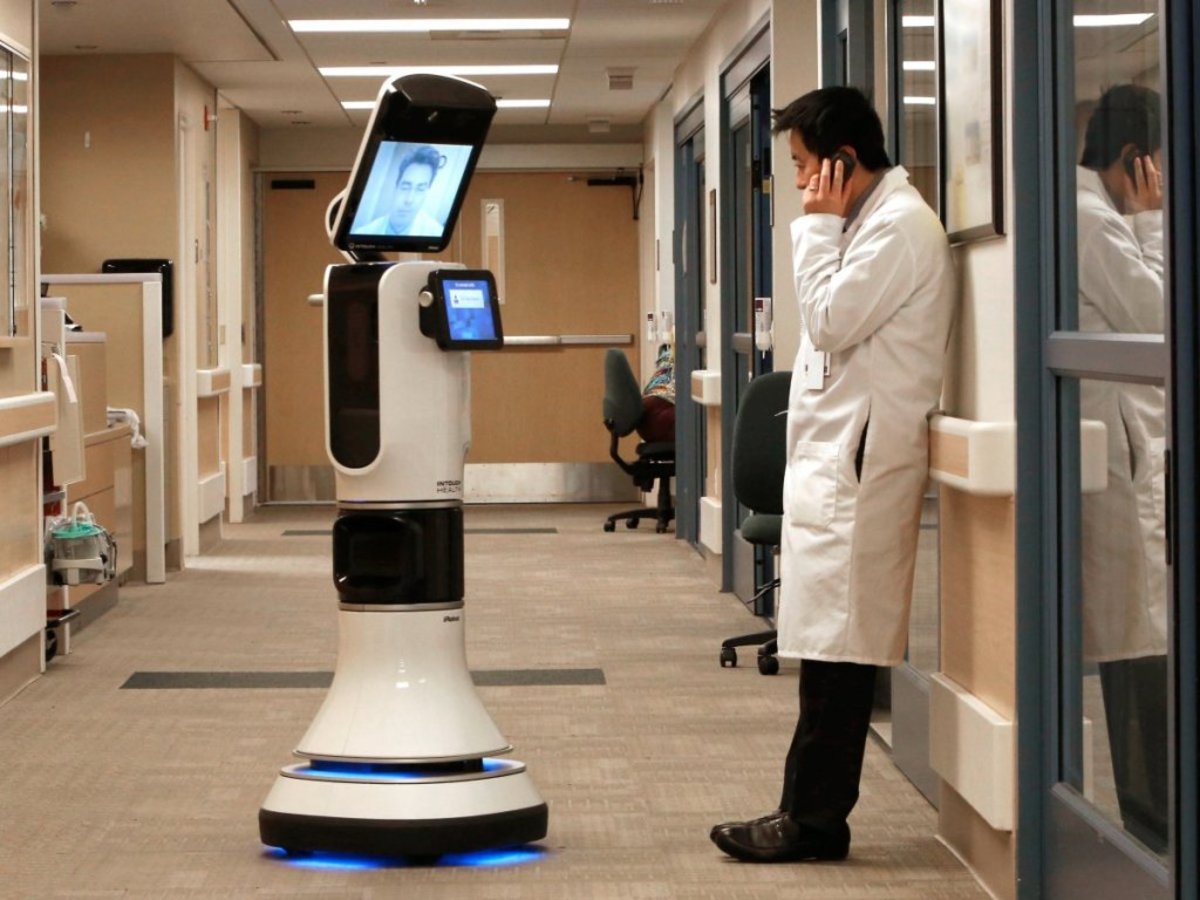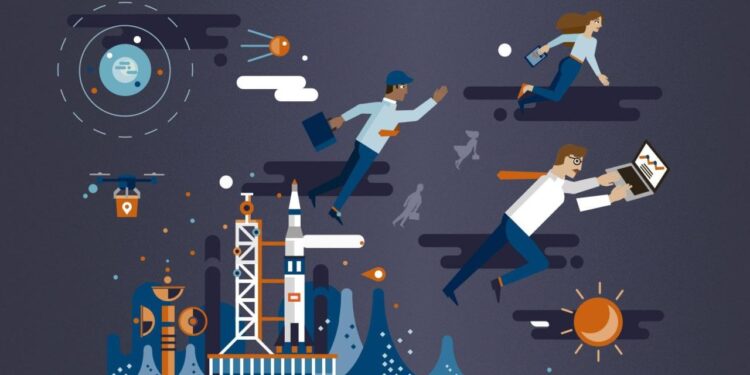The global economy is undergoing a profound transformation, driven by an accelerating wave of technological innovation. In this rapidly evolving landscape, future jobs are increasingly defined by a relentless digital focus. Traditional industries are being reshaped, entirely new sectors are emerging, and the very nature of work is changing, demanding a workforce equipped with adaptable and sophisticated digital skills. Understanding this profound shift, identifying the key digital competencies required, and preparing effectively for these roles is paramount for individuals, educational institutions, and governments seeking to thrive in the decades to come.
The Unstoppable March of Digital Transformation

The shift towards digital-centric economies isn’t a new phenomenon, but its pace has dramatically accelerated, making digital proficiency the new universal language of the workforce.
A. Forces Driving Digital Job Evolution
Several interconnected forces are reshaping the job market, placing digital skills at the forefront of employability.
- Automation and Artificial Intelligence (AI): AI and automation are rapidly taking over routine, repetitive, and predictable tasks across various industries. This doesn’t necessarily mean job loss on a massive scale but rather a significant shift in job roles, requiring human workers to focus on tasks that demand creativity, critical thinking, emotional intelligence, and complex problem-solving – areas where AI still lags.
- Big Data and Analytics: The sheer volume of data generated daily is astronomical. Businesses are desperate for professionals who can collect, analyze, interpret, and leverage this data to make informed decisions, drive innovation, and gain competitive advantages. This has given rise to data science, machine learning engineering, and business intelligence roles.
- Cloud Computing: Cloud infrastructure has revolutionized how businesses operate, store data, and deliver services. This widespread adoption has created a massive demand for cloud architects, developers, security specialists, and migration experts.
- Cybersecurity Threats: As more aspects of life move online, the threat of cyberattacks grows exponentially. This necessitates a highly skilled cybersecurity workforce dedicated to protecting data, networks, and systems from malicious actors.
- Internet of Things (IoT): The proliferation of connected devices, from smart homes to industrial sensors, generates vast amounts of data and requires specialized skills in network management, data processing, and device integration.
- Blockchain and Web3: Emerging technologies like blockchain are poised to disrupt industries beyond finance. Roles related to decentralized applications (dApps) development, smart contract auditing, and Web3 infrastructure are on the rise, though still nascent.
- Remote Work Revolution: The global pandemic accelerated the adoption of remote and hybrid work models. This fundamental shift relies heavily on digital collaboration tools, robust cybersecurity, and cloud-based systems, making digital fluency essential for distributed teams.
B. Digital Skills in Every Sector
Crucially, the demand for digital skills isn’t confined to the technology sector alone. Every industry is undergoing a digital transformation, integrating technology into its core operations.
- Healthcare: From telemedicine and AI-powered diagnostics to electronic health records and wearable health tech, digital skills are vital for nurses, doctors, administrators, and researchers.
- Manufacturing: Industry 4.0 embraces automation, IoT, and AI in smart factories, requiring workers to manage robotics, analyze production data, and oversee interconnected systems.
- Retail and E-commerce: Digital marketing, data analytics for consumer behavior, e-commerce platform management, and supply chain optimization are central to modern retail.
- Finance: Fintech innovations, blockchain for secure transactions, algorithmic trading, and data analysis for risk management are transforming the financial sector.
- Education: Digital learning platforms, AI-driven personalization, and online collaboration tools require educators and administrators with strong digital competencies.
- Agriculture: Precision agriculture uses IoT sensors, drones, and data analytics to optimize crop yields and resource management, demanding digital expertise from farmers and agricultural scientists.
Key Digital Skills Shaping Future Careers
To thrive in the digitally focused job market, individuals must cultivate a diverse and adaptive skill set, moving beyond basic computer literacy to more specialized and strategic competencies.
A. Foundational Digital Competencies
These are the bedrock skills that serve as prerequisites for almost any modern job.
- Digital Literacy and Fluency: The ability to effectively navigate digital environments, use productivity software (e.g., Microsoft Office Suite, Google Workspace), understand cloud-based tools, and manage digital files. This is the equivalent of basic literacy in the 21st century.
- Data Literacy: The capacity to read, analyze, interpret, and communicate with data. This includes understanding basic statistics, working with spreadsheets, and recognizing data visualizations.
- Cybersecurity Awareness: Understanding fundamental cybersecurity principles, recognizing phishing attempts, using strong passwords, protecting personal data, and knowing how to safely navigate online environments.
- Digital Communication and Collaboration: Proficiency in using online tools for effective communication (e.g., email, video conferencing, instant messaging) and collaboration (e.g., shared documents, project management software) in remote and hybrid settings.
- Critical Thinking and Problem-Solving (Digitally Enhanced): The ability to use digital tools to research, analyze information, identify problems, and devise creative solutions, often in collaboration with AI.
B. Specialized Technical Skills (High Demand)
These skills often require more formal training but command high salaries and are in massive demand across various industries.
- Artificial Intelligence (AI) and Machine Learning (ML):A. AI/ML Engineering: Designing, developing, and deploying AI models and algorithms.
B. Data Science: Collecting, cleaning, analyzing, and interpreting large datasets to extract insights and inform business decisions.
C. Prompt Engineering: The emerging skill of effectively communicating with generative AI models to achieve desired outputs.
D. Natural Language Processing (NLP): Working with AI systems that understand, interpret, and generate human language.
- Cloud Computing Expertise:A. Cloud Architects: Designing and implementing cloud solutions (AWS, Azure, Google Cloud).
B. Cloud Engineers: Developing, deploying, and managing applications and infrastructure on cloud platforms.
C. DevOps Engineers: Bridging development and operations to streamline software delivery, often heavily reliant on cloud tools.
- Cybersecurity:A. Security Analysts: Monitoring systems, detecting threats, and responding to incidents.
B. Ethical Hackers (Penetration Testers): Proactively identifying vulnerabilities in systems.
C. Security Architects: Designing secure systems and networks.
- Software Development and Programming:A. Full-Stack Developers: Proficiency in both front-end (user interface) and back-end (server, database) development.
B. Mobile App Development: Creating applications for iOS and Android platforms.
C. Web Development (Advanced): Expertise in modern web frameworks and technologies.
- Data Engineering: Designing and building systems for collecting, storing, processing, and analyzing large-scale data.
- Blockchain Development: Designing and implementing decentralized applications (dApps), smart contracts, and blockchain solutions.
- UX/UI Design: Creating intuitive, user-friendly, and aesthetically pleasing digital interfaces and experiences.
C. Human-Centric “Soft” Skills (Amplified by Digital Context)
While “digital focus” points to technical skills, uniquely human attributes become even more valuable in an AI-powered world, often enhanced by digital tools.
- Adaptability and Lifelong Learning: The most critical skill in a rapidly changing world is the ability to continuously learn new technologies, embrace change, and pivot skills.
- Creativity and Innovation: As AI handles routine tasks, human creativity in generating new ideas, artistic expression, and unconventional solutions becomes paramount.
- Complex Problem-Solving: Tackling unstructured, ambiguous problems that require nuanced understanding, ethical judgment, and human insight.
- Emotional Intelligence: Understanding and managing one’s own emotions and recognizing emotions in others, crucial for effective team collaboration and leadership.
- Interpersonal Communication: While digital, the ability to clearly articulate ideas, persuade, and build relationships remains fundamental.
- Cross-Cultural Collaboration: Working effectively with diverse teams across geographical boundaries, often facilitated by digital tools.
Pathways to Acquiring Future-Ready Digital Skills

Equipping individuals with the necessary digital skills requires a multi-faceted approach involving traditional education, industry partnerships, and individual initiative.
A. Formal Education Adaptation
Traditional educational institutions must rapidly evolve their curricula and teaching methods.
- Curriculum Overhaul: Integrate digital literacy, computational thinking, and data science across all disciplines from primary school through university.
- Specialized Programs: Develop and expand degree programs and certifications in high-demand digital fields like AI, cybersecurity, and cloud computing.
- Experiential Learning: Emphasize project-based learning, internships, and apprenticeships that provide hands-on experience with real-world digital tools and challenges.
- Continuous Teacher Training: Invest in ongoing professional development for educators to keep them updated on the latest technologies and digital pedagogy.
- Promote STEM Education: Encourage greater participation in Science, Technology, Engineering, and Mathematics fields from an early age, especially for underrepresented groups.
B. Online Learning and Micro-Credentials
The flexibility and accessibility of online platforms are vital for rapid upskilling and reskilling.
- MOOCs and Online Courses: Platforms like Coursera, edX, Udacity, and Khan Academy offer affordable, high-quality courses and specializations from leading universities and industry experts.
- Bootcamps and Intensive Programs: Immersive coding bootcamps, data science bootcamps, and cybersecurity academies offer accelerated pathways to acquiring specialized skills.
- Micro-Credentials and Badges: Shorter, focused certifications that validate specific skills are becoming increasingly valuable for demonstrating proficiency without a full degree.
- Industry Certifications: Vendor-specific certifications (e.g., AWS Certified Solutions Architect, Google Cloud Professional Data Engineer, CompTIA Security+) are highly valued by employers.
C. Government and Industry Initiatives
Collaboration between public and private sectors is crucial for workforce development.
- National Digital Skill Strategies: Governments should develop comprehensive strategies for digital skill development, including funding for training programs, incentives for businesses, and initiatives to bridge the digital divide.
- Public-Private Partnerships: Encourage collaboration between educational institutions and tech companies to ensure curricula are industry-relevant and provide students with access to cutting-edge tools and real-world projects.
- Reskilling and Upskilling Programs: Implement government-funded programs to retrain workers displaced by automation or to upskill existing workforces for new digital roles.
- Apprenticeship Programs: Expand apprenticeship models to digital fields, combining on-the-job training with formal instruction.
- Tax Incentives for Training: Provide tax breaks or subsidies to companies that invest in digital skills training for their employees.
D. Individual Responsibility and Mindset
Ultimately, success in the future job market hinges on an individual’s proactive approach to learning and adapting.
- Embrace Lifelong Learning: Adopt a mindset of continuous learning, recognizing that skill development is an ongoing journey, not a one-time event.
- Cultivate Curiosity and Experimentation: Be curious about new technologies, experiment with digital tools, and explore how they can be applied to solve problems.
- Build a Portfolio: For technical roles, demonstrating skills through personal projects, open-source contributions, and online portfolios is often more valuable than just a resume.
- Network and Collaborate: Engage with digital communities, attend industry events (virtual or in-person), and collaborate with peers to learn from others and discover new opportunities.
- Focus on Problem-Solving: Instead of just learning tools, focus on how those tools can be used to solve real-world problems.
The Broader Societal Impact for an Inclusive Digital Future
The shift towards digitally focused jobs also carries significant societal implications, demanding a focus on inclusion and equity.
A. Bridging the Digital Divide
The risk of creating a two-tiered society – digital haves and have-nots – is real and must be actively mitigated.
- Equitable Access: Ensuring all individuals, regardless of socioeconomic status, geography, or background, have access to affordable broadband internet, necessary devices, and digital literacy training.
- Inclusion of Underrepresented Groups: Actively promote digital skill development and STEM education for women, minorities, rural populations, and individuals with disabilities to ensure diverse representation in future jobs.
- Digital Literacy for All Ages: Provide programs for older workers to reskill and adapt to new digital tools, preventing them from being left behind in the evolving workforce.
B. Ethical Considerations in AI and Automation
As AI and automation become more prevalent, ethical considerations around their impact on work become critical.
- Responsible AI Development: Ensuring AI is developed and deployed ethically, minimizing bias and promoting fairness in hiring, promotion, and task assignment.
- Human-Centric Automation: Designing automation that augments human capabilities rather than simply replacing them, allowing workers to focus on higher-value, more engaging tasks.
- Policy for Displaced Workers: Developing robust social safety nets, retraining programs, and potentially universal basic income discussions to support workers whose jobs are significantly impacted by automation.
C. The Evolving Nature of Work-Life Balance
Digital jobs, especially remote ones, can blur the lines between work and personal life, requiring new strategies for well-being.
- Digital Wellness: Promoting healthy screen time habits, digital detoxes, and mental health awareness to combat burnout and stress in highly connected roles.
- Flexible Work Models: Embracing hybrid and flexible work arrangements that prioritize employee well-being and autonomy.
- New Management Styles: Developing leadership skills for managing distributed teams, fostering engagement, and maintaining company culture in a digitally focused environment.
Conclusion
The trajectory of future jobs is unmistakably marked by a profound digital focus. This isn’t just a trend; it’s the fundamental operating system of the 21st-century economy. From highly specialized AI engineers to digitally fluent healthcare professionals, the demand for adaptable, digitally skilled individuals will only intensify.
While the challenges of this transformation are significant – including the digital divide, ethical dilemmas, and the need for continuous learning – the opportunities for innovation, economic growth, and personal empowerment are even greater. By prioritizing accessible digital education, fostering strong public-private partnerships, encouraging a mindset of lifelong learning, and focusing on human-centric skills that complement AI, we can collectively navigate this exciting new frontier. The future of work is digital, and those who embrace its demands will be the architects of tomorrow’s prosperity.







Discussion about this post